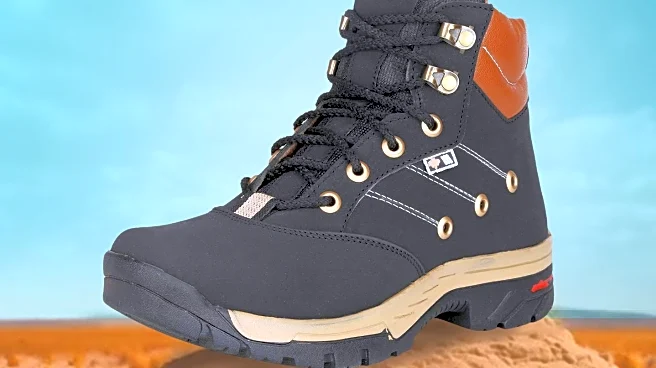What's Happening?
Amazon is currently offering a significant discount on boots that closely resemble the popular Ugg brand, priced at $37.98 compared to the original $170 price tag. These boots feature memory foam support
and have received positive reviews for their comfort and style. Customers have praised the boots for their lightweight feel and the cozy fur lining, making them ideal for winter wear. The boots are available in various sizes, including options for wide feet, and have been noted for their sturdy construction and ease of use. The discount represents nearly 25% off the typical price, making them an attractive option for budget-conscious shoppers looking for quality winter footwear.
Why It's Important?
The availability of affordable alternatives to high-priced brand-name products is significant for consumers, especially during economic downturns when discretionary spending is limited. Offering a product that mimics the style and comfort of a well-known brand at a fraction of the cost can attract a wide range of customers, including those who prioritize value over brand loyalty. This trend can impact the footwear industry by increasing competition and encouraging established brands to innovate or adjust pricing strategies. Additionally, it highlights the growing importance of online retail platforms like Amazon in shaping consumer purchasing decisions.
What's Next?
As the holiday season approaches, retailers may continue to offer competitive pricing and discounts to attract shoppers. The success of these boots could lead to further expansion of similar products, potentially influencing market trends in the footwear industry. Consumers might see more options for affordable, high-quality alternatives to popular brands, prompting established companies to reassess their pricing and marketing strategies. Retailers will likely monitor sales performance and customer feedback to optimize inventory and promotional tactics.
Beyond the Headlines
The rise of affordable alternatives to luxury brands raises questions about consumer behavior and brand perception. It challenges the notion that higher price equates to better quality, as consumers increasingly seek value and functionality. This shift could lead to broader changes in the fashion industry, where brand prestige may become less influential in purchasing decisions. Ethical considerations also emerge regarding manufacturing practices and the environmental impact of producing low-cost goods.











